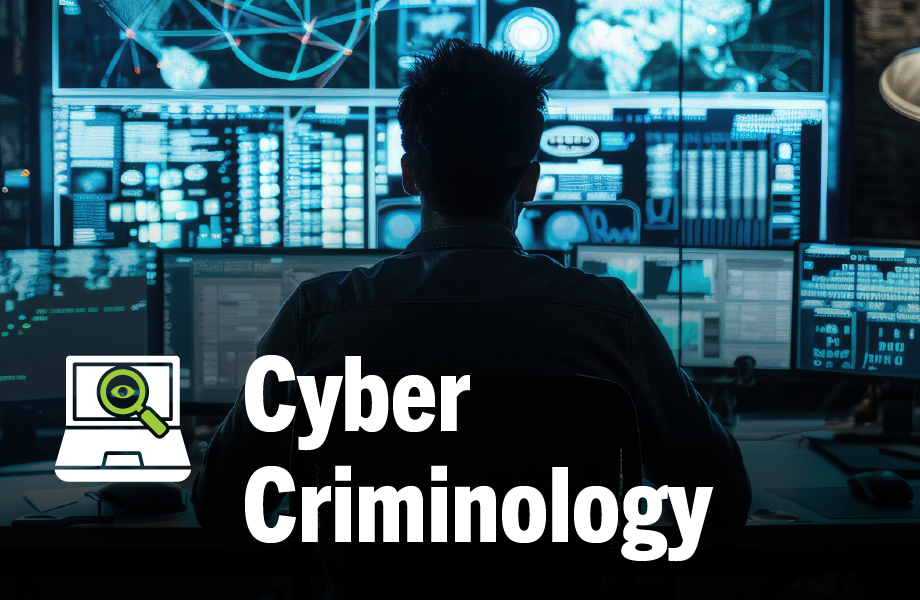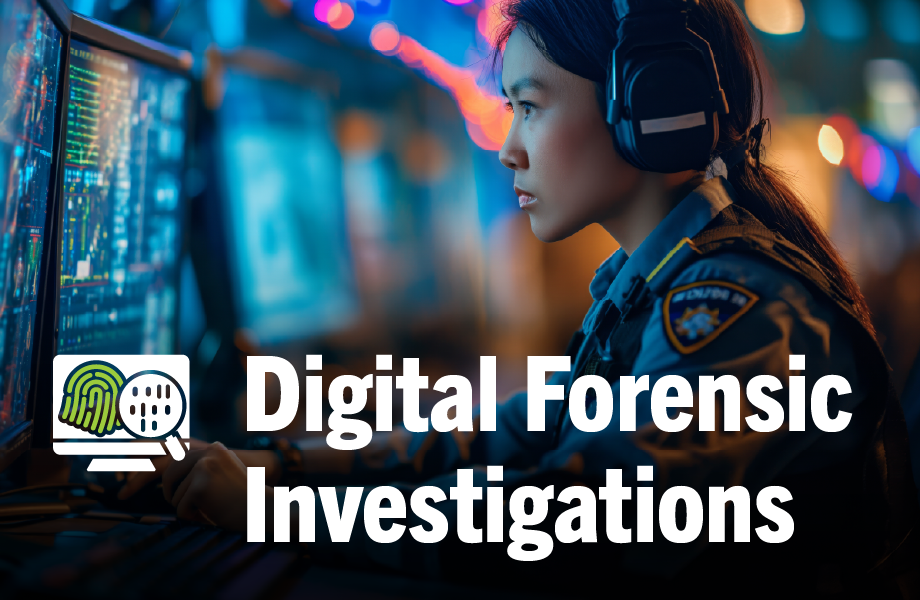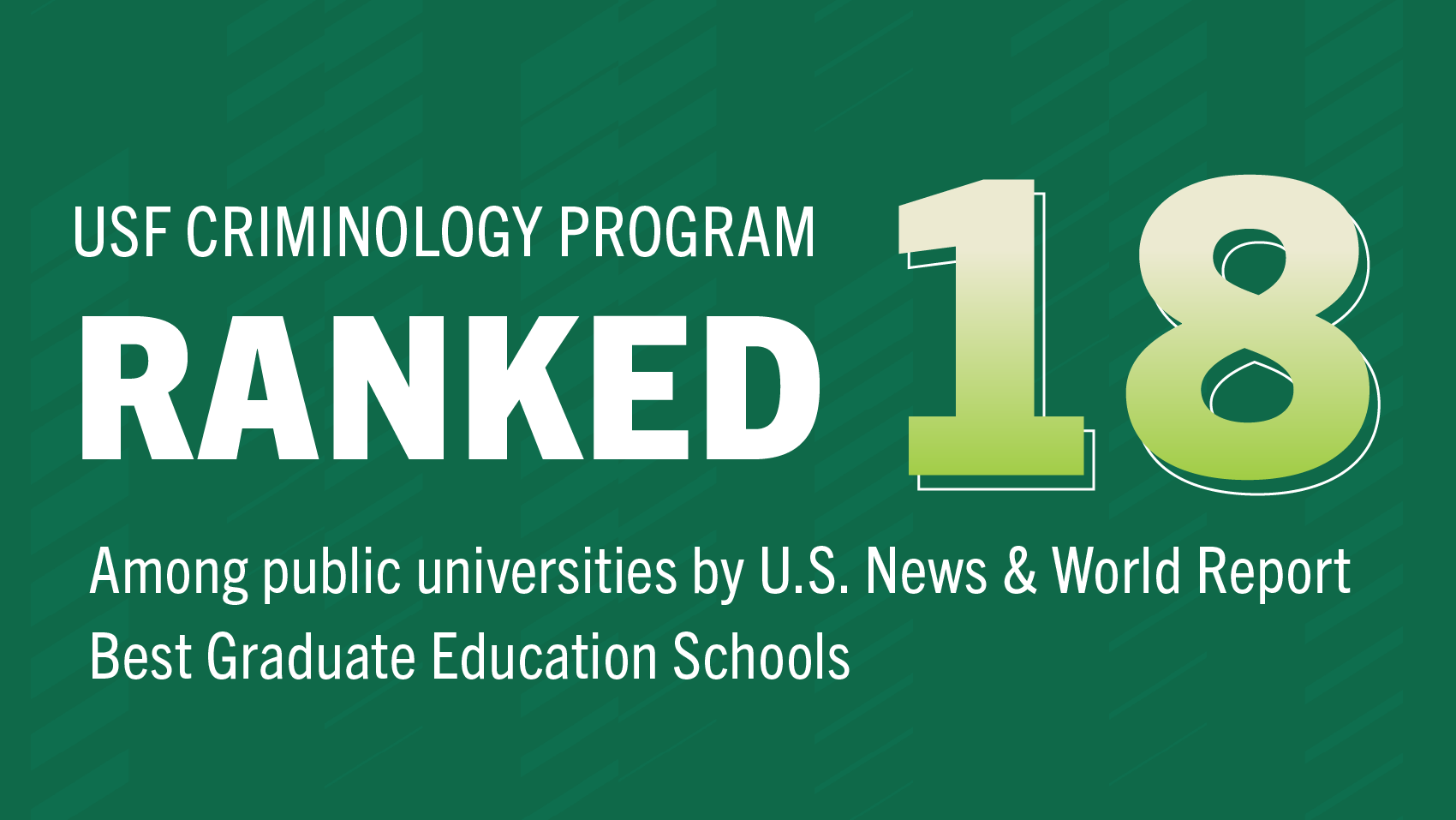Cyberthreats are evolving. So are the professionals who combat them.
From personal devices to corporate networks, cybercriminals are exploiting digital vulnerabilities at an alarming rate. Identity theft, ransomware, online fraud, and the sale of stolen data on the Dark Web are becoming more sophisticated, threatening individuals, businesses, and national security.
USF’s online Master of Science in Cybercrime prepares students to investigate, analyze, and prosecute cybercriminals. This program focuses on the legal, investigative, and forensic aspects of cybercrime, readying graduates to track criminals, collect digital evidence, and support law enforcement efforts.
Taught by expert faculty with real-world experience in law enforcement, intelligence, cybersecurity, and cybercrime research, this 100% online program delivers cutting-edge knowledge in cyber forensics, investigative techniques, and digital threat analysis.
 Students in the Cyber Criminology concentration explore the intersection of technology,
crime, and the justice system. They learn research methods to analyze cybercrime trends,
evaluate legal policies, and assess the impact of digital crime on individuals and
society. Coursework covers cybercrime law, social policy, victimology, and the role
of emerging technologies in crime and prevention.
Students in the Cyber Criminology concentration explore the intersection of technology,
crime, and the justice system. They learn research methods to analyze cybercrime trends,
evaluate legal policies, and assess the impact of digital crime on individuals and
society. Coursework covers cybercrime law, social policy, victimology, and the role
of emerging technologies in crime and prevention.
This track is ideal for students interested in cybercrime analysis, policy development, victim advocacy, and criminal justice reform.
Graduates can pursue careers in:
- Law Enforcement Support
- Intelligence Analysis
- Government Policy
- Research Organizations
 Students in the Digital Forensic Investigations concentration develop specialized
skills in identifying, collecting, and analyzing digital evidence to support criminal
investigations and legal proceedings. Coursework covers mobile device forensics, network
investigations, and digital evidence collection, preparing students to trace cybercriminal
activity across devices, networks, and online platforms.
Students in the Digital Forensic Investigations concentration develop specialized
skills in identifying, collecting, and analyzing digital evidence to support criminal
investigations and legal proceedings. Coursework covers mobile device forensics, network
investigations, and digital evidence collection, preparing students to trace cybercriminal
activity across devices, networks, and online platforms.
This track is ideal for those pursuing careers in law enforcement, corporate security, and national defense, where digital evidence plays a critical role in solving cybercrimes.
Graduates can work helping uncover cyber threats and support the prosecution of online offenders in roles including:
- Digital Forensic Investigator
- Cybercrime Analyst
- Cybersecurity Specialist
Opening Career Options
Demand for cybercrime specialists is rising across law enforcement, national security, and the private sector. Graduates are prepared for cybercrime investigations, forensic exams, and digital evidence analysis in agencies like the FBI and Homeland Security. Beyond government, companies seek experts in corporate fraud, cryptocurrency scams, and IT security. Graduates can also assist legal teams by analyzing digital evidence for court. With the U.S. Bureau of Labor Statistics projecting 13% job growth by 2030, this fast-growing field offers strong salaries and high demand.

Affordable Tuition
With one of the most affordable graduate tuition rates in cybercrime studies, this program provides high-quality education without excessive costs. The tuition rate is the same for in-state or out-of-state students, allowing students to advance their careers in cybercrime investigations, digital forensics, and policy analysis without financial barriers. There are unique benefits to both studying online and studying on campus. Whether you want more flexibility or value in-person learning, it’s important to choose the right option for you. Click here to compare costs between the two programs.



